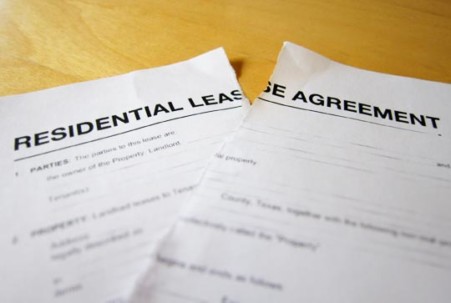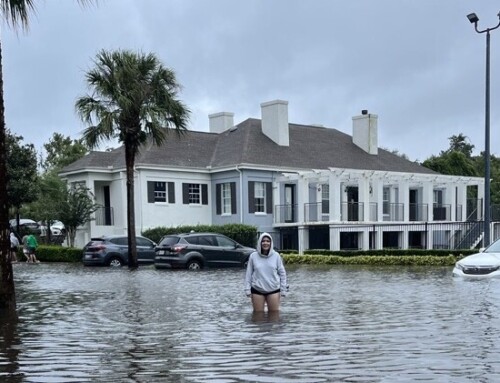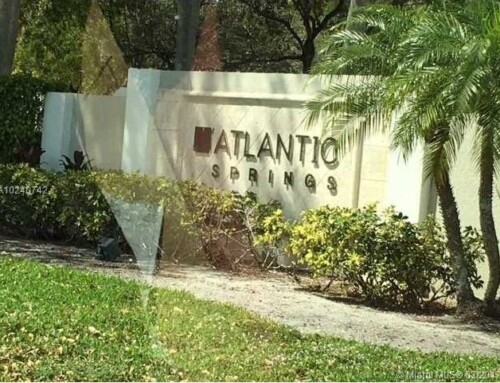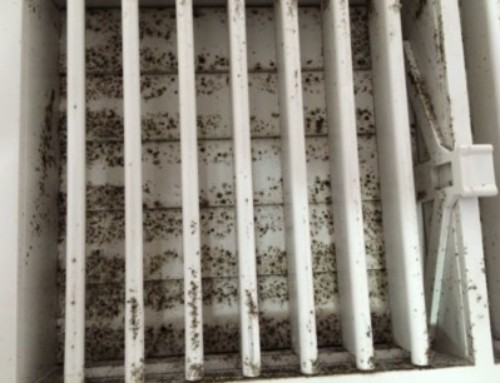We frequently receive calls from tenants asking, “how can I break my lease because of mold”? A tenant residing in Florida has certain legal rights when the landlord fails to maintain the premises. Due to the warm and humid climate in South Florida, it is common for tenants to have roof leaks, air conditioning leaks and pipe bursts all of which introduces water into the property. Once water breaches the inside of the property and it is not immediately dried out and left untreated, it can result in the growth of toxic black mold. Mold can typically be visible as discoloration on the walls and ceilings inside the premises. Tenants often tell us that they verbally inform the landlord of these water and mold problems, but the landlord usually do not take these issues seriously, or do not wish to spend the money that is required to fix the problems in the proper manner.
How to Break a Lease Because of Mold Under Florida’s Landlord-Tenant Act
Florida’s Landlord-Tenant Act requires landlords to maintain minimum housing standards when renting property to tenants. Florida Statute section 83.51 requires that landlords must “maintain the roofs, windows, doors, floors, steps, porches, exterior walls, foundations, and all other structural components in good repair and capable of resisting normal forces and loads and the plumbing in reasonable working condition.” This includes ensuring that the property is free of water intrusions and free of toxic black mold.
Under the law, landlords are not required to make any repairs to the property unless and until the tenant notifies the landlord in writing. It is very important that you give the landlord the notice to the address as required in your lease. We recommend that you send the letter to the landlord by certified mail to ensure that it was delivered. It is fine to send the letter in other ways such as e-mail or text in addition to the certified letter. We recommend that you use this form when giving the landlord the written notice. It is very important to be a specific as possible when providing the landlord with written notice. Vague or non-specific notices may not hold up in court. We recommend that you specifically identify which room the mold is located in, and which wall or walls the mold is on. Use directional words such as “north wall” or “east wall” so that there is no confusion as to where the mold is location. It is wise to also include photographs showing the location of the mold to further explain to the landlord what areas you are complaining about. The Mold Lawyers at Militzok & Associates are available to assist tenants in properly preparing the written notice to cure. Contact us at (954) 241-2260 for more information. You can also e-mail us at info@themold.lawyer. We offer a FREE consultation.
What Happens Next After the Tenant Delivers the Written Notice to Cure
After you have given the proper legal notice to the landlord, the landlord has 7 days to make the repairs, or if the repairs will take longer than 7 days, then the landlord has to have started making the repairs within 7 days. Mold must be remediated in accordance with Florida law. This means that landlords must use licensed mold remediation contractors that are fully licensed, bonded and insured. A fully licensed mold remediation contractor will take all necessary measures to ensure that the mold is contained to a certain area by sealing off the contaminated areas. Usually, the tenant cannot reside in the premises during the mold remediation process and the landlord should arrange to pay for alternative housing arrangements during this time. If the landlord has failed to properly remediate the mold during the 7 day period, then the tenant has the legal right to terminate the lease by doing so in writing. Once the tenant has terminated the lease, the tenant is no longer responsible for paying the rent and the landlord must return the tenant’s security deposit within 30 days, unless the tenant has caused other damage to the property.
Now Handling Cases Throughout the State of Florida
We represent clients in the following cities of Fort Lauderdale, Pompano Beach, Coral Springs, Davie, Plantation, Weston, Miramar, Sunrise, Coconut Creek, Dania Beach, Lauderhill, Margate, Parkland, Deerfield Beach, Oakland Park, Hallandale, Pembroke Park, Pembroke Pines, Hollywood, Cooper City, Tamarac, Wilton Manors, Lauderdale Lakes, North Lauderdale, Lighthouse Point, Southwest Ranches, Hillsboro Beach, West Park and Pembroke Park.
We also represent clients in Miami-Dade county in the following cities: Miami, Miami Beach, Hialeah, Homestead, Coral Gables, Doral, North Miami, Aventura, North Miami Beach, Aventura, North Miami Beach, South Miami, Miami Gardens, Key Biscayne, Sunny Isles Beach, Pinecrest, Miami Lakes, Opa Locka, Cutler Bay, Sweetwater, Palmetto Bay, Miami Springs, Miami Shores, Florida City, Surfside, Bay Harbor Islands, North Bay Village.
In Palm Beach County, we represent clients from South Bay, Golf, Manalapan, Briny Breezes, Greenacres, Magonia Park, Hypoluxo, Highland Beach, Lark Clarke Shores, Belle Glade, Pahokee, Glen Ridge, Tequesta, Atlantis, Loxahatchee Groves, Palm Beach Shores, Haverhill, Gulf Stream, South Palm Beach, Cloud Lake, Juno Beach, Palm Springs, North Palm Beach, Wellington, Lake Park, Lantana, Palm Beach Gardens, Jupiter, Riviera Beach, Boynton Beach, Jupiter Inlet, Ocean Ridge, Palm Beach, Royal Palm Beach, Boca Raton, West Palm Beach, Lake Worth, Delray Beach.
We are now accepting cases throughout the State of Florida in cities such as Tampa / St. Petersburg, Clearwater, Orlando, and Naples / Ft. Myers areas.






Leave A Comment